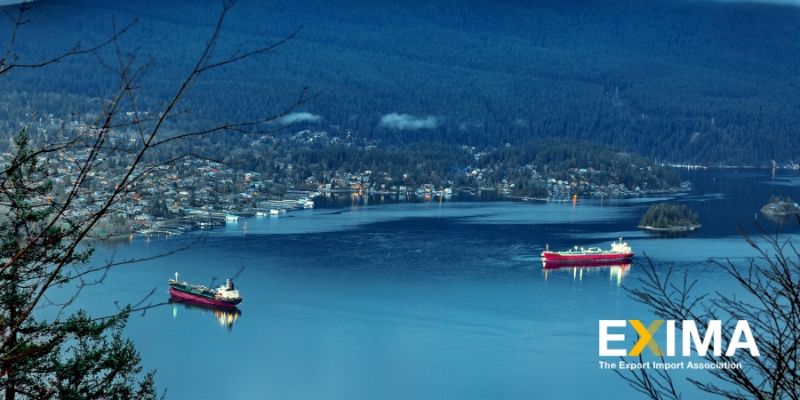In November and December of 2021, a huge amount of rainfall caused widespread floods and mudslides in British Columbia, Canada’s westernmost province. With essential roads and railways cut off from Canada’s largest port, the nation’s vulnerability to climate catastrophes was laid bare.
The majority of Canadian exports are shipped from BC ports, specifically the Port of Vancouver, on the Pacific coast, and are mostly destined for Asian markets. Exports account for nearly one-third of Canada's GDP, so any hindrances to these exports are serious problems. But with only two rail lines and just a handful of highways that go through the Rocky Mountains and BC’s rugged interior, climate change is quickly becoming one of the biggest challenges facing Canadian exporters.
Fire and water
The floods and mudslides have ravaged the Fraser Canyon. The canyon, and accompanying Fraser Valley, stretch from BC's high interior plateau through the Coast Mountains to the lower mainland. This area experienced some of the most severe highway washouts during the storm and, not coincidentally, was also devastated by wildfires the previous summer.
The fires cleared entire swaths of land, burned forests, and damaged the soil. With little more than a barren landscape between the floodwaters and the highways and rail lines, there was no stopping the water and mud. It was a one-two punch that reminds us just how vulnerable we are to the potential damage of climate change.

Possible solutions
The obvious solution is to build more rail lines and roads to provide other arteries to these important ports. And this idea has been floated, but building a third railway track through the canyon, about 150kms (93 miles) northeast of Vancouver, is not practical because these BC tracks are carved into the canyon. Building more railway lines would require so much carving and blasting as to make it unfeasible and cost prohibitive.
Prince Rupert, in northern BC, plans to increase its port’s container capacity by about 33% by 2023. This will offer another option for shippers, but it would still be far too small to solve the problem. There’s some discussion that, were global warming to be significant enough, the port at Churchill in northern Manitoba on Hudson Bay could become viable for major usage.
But such warming would likely bring with it a multitude of other disasters. The only real solution here is for Canada, and other nations and corporations, to drastically reduce greenhouse gas emissions as quickly as possible and try to find ways to limit future, climate-induced damages.
Stay in the Loop With EXIMA News
If you found this article helpful, make sure to check out the rest of our News Page for more information and updates on current events!









